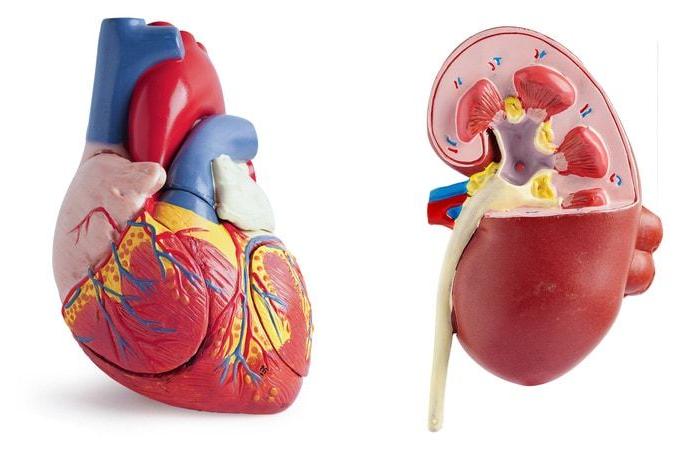Nearly 80% of patients followed in nephrology for chronic kidney failure (CKD) are hypertensive. And the more the patient’s condition worsens on the renal level, the greater the hypertension. Both hypertension and CKD are intrinsically linked. Hypertension is an important determinant of worsening renal function and cardiovascular risk, and worsening renal function aggravates hypertension. Patients suffering from hypertension and CKD need to be treated with more medications to achieve control of their blood pressure.
On the occasion of the Arterial Hypertension Days (JHTA) which were held in Paris in December 2024, the Pre Belén Pontehead of the hypertension unit (nephrology and hypertension department, University Hospitals of Geneva), detailed new strategies for managing hypertension in patients with both hypertension and renal failure. Treatment of course involves anti-hypertensive medications, but now also nephroprotective medications are combined.
The pathophysiology of hypertension in chronic renal failure is complex. It is linked in particular to salt and water retention, the increase in extracellular fluids, the increase in vascular resistance and the increase in sympathetic activity… The cardiovascular risk in these patients suffering from both hypertension and renal insufficiency, is all the higher as the glomerular filtration rate is lower and albuminuria is higher, two independent predictors of increased cardiovascular risk.
Furthermore, patients suffering from renal failure have a particular blood pressure profile. They often present with blood pressure lability, with nocturnal hypertension linked to subclinical salt and water retention. This nocturnal high blood pressure is associated with frequent sleep disorders, in particular obstructive sleep apnea which affects 25 to 57% of dialysis patients compared to 10% of the general population. Furthermore, almost half of patients suffering from chronic kidney failure have treatment-resistant hypertension, particularly in the advanced stages of CKD.
How to manage hypertension in patients with both hypertension and renal insufficiency?
“For these patients at high vascular risk, we must start immediately with two medications at moderate doses, says Professor Belén Ponte. By favoring treatments that antagonize the renin-angiotensin system, which also have a nephroprotective effect. It is recommended to start treatment with angiotensin-converting enzyme inhibitors or angiotensin 2 antagonists. To improve effectiveness, while protecting the kidneys, it is necessary to prescribe a diuretic in combination, which improves control of serum potassium. »
-New therapeutic options
In June 2023, the European Society of Hypertension (ESH) has published new recommendations, several of which concern the treatment of hypertension in patients with chronic renal failure. In particular, the use of spironolactone or chlorthalidone is recommended in patients suffering from resistant hypertension, depending on their glomerular filtration rate.
These recommendations also highlight the benefit of prescribing nephroptoprotectors. “Certain nephroprotective medications do indeed have an impact on blood pressure. In addition to protecting the kidney, they also reduce blood pressure. They now represent targeted treatments for patients suffering from both hypertension and CKD, underlines the expert. In this category, we find in particular SGLP2 inhibitors (sodium-glucose cotransporter type 2 inhibitors) and GLP1 agonists (glucagon-like peptide 1 analogs) used against type 2 diabetes and more recently against obesity. . These GLP1 agonists, in addition to protecting kidney functions, allow weight loss, which has a favorable effect on blood pressure.
These two classes have a nephroprotective and anti-hypertensive effect. This is a small revolution in the care of hypertensive patients suffering from renal failure. Combined with anti-hypertensives, they allow an additional reduction in hypertension of 2 to 5 millimeters of mercury. Other nephroprotective drugs are currently the subject of clinical trials, such as new nonsteroidal mineralocorticoid receptor antagonists or finerenone. In addition, promising innovations are coming for the management of hypertension associated with chronic kidney failure.






